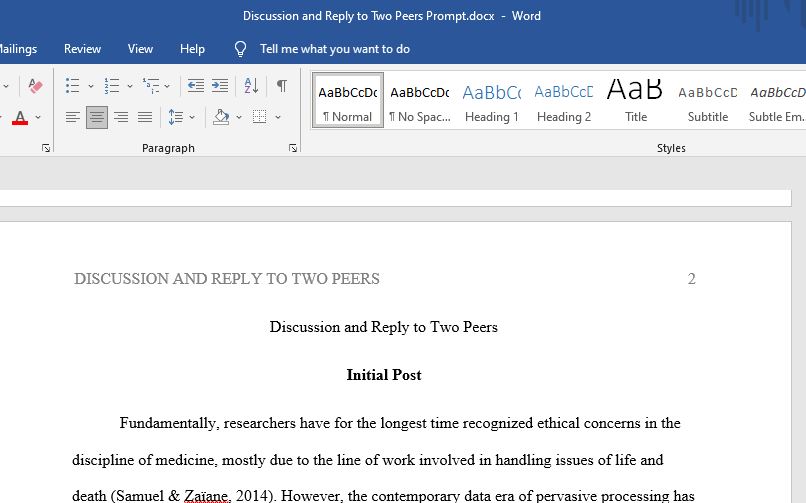What are some of the ethical considerations that go along with health informatics?
Initail POST:
What are some of the ethical considerations that go along with health informatics?
Then reply to two peers:
What are some of the ethical considerations that go along with health informatics?
Ethics can involve things such as the standards of value, moral practice, and even code of conduct. While ethical issues with health informatics are essential due to the nature towards the information involved, and the confidentiality of patient information. Also, ethical issues can rise as a consequence towards both the consequence of making and incorrect self diagnosis. The goal of health informatics is to combine all data that is patient-related into information that can then be used to make good decisions for treatment and/ or to compose information that can be used to strengthen the care of large population of patients. Some ethical considerations that goes along with health informatics would include both the correct selection and use of informatic tools in a clinical setting, determining who should use the tools, system evaluation, system developers, maintainers, and vendors. Also, using computers to track down the clinical outcomes to help guide practice in the future.
Reference
Biedermann, S., (2017). Introduction to Healthcare Informatics, Second Edition, (2nd Edition)
Goodman, K., Miller, R., (N.D) Ethics and Health Informatics: Users, Standards, and Outcomes. Retrieved from:http://eknygos.lsmuni.lt/springer/56/379-402.pdf
What are some of the ethical considerations that go along with health informatics?
Health informatics bring to mind all the new and grand inventions of the 21st century regarding health care, like electronic health records, prescription ordering systems and many more. Regarding ethics, there are clear standards in health care including principles of respect for autonomy, nonmaleficence, beneficence, and justice. EHR can be beneficial for patient care, but also bears risk. For example nonmaleficence requires refraining from harming patients, while beneficence entails providing beneficial care and preventing harm. Poorly used EHR can cause poor documentation which in turn leads to lesser quality of care. Some physicians refuse to train on the new electronic systems and are unable to find the information they need to treat patients adequately. For example, if pathology results aren’t reviewed and entered correctly, a positive pap smear won’t show up at the top of the list for that specific patient and maybe their gynecologist won’t see it and not conduct a repeat in 6 months like it is protocol.
Another issue, although discussed almost too much, is confidentiality. HIPAA is in place to protect patients, but data leaks and malware still happen, which isn’t a possibility with paper records. Another ethical issue that can arise is providers giving out their passwords and accesses to have their personnel (like medical assistants) handle their “menial” tasks like prescription refills, which is out of their scope. This would qualify as a violation of nonmaleficence.
Phillips W. (2015). Ethical controversies about proper health informatics practices. Missouri medicine, 112(1), 53–57.
Sue (2017). Introduction to Healthcare Informatics, Second Edition (2nd Edition). American Health Information Management Association (AHIMA). https://purdueuniversityglobal.vitalsource.com/books/9781584265283
Requirements: see rubric
Answer preview:

word limit:519
